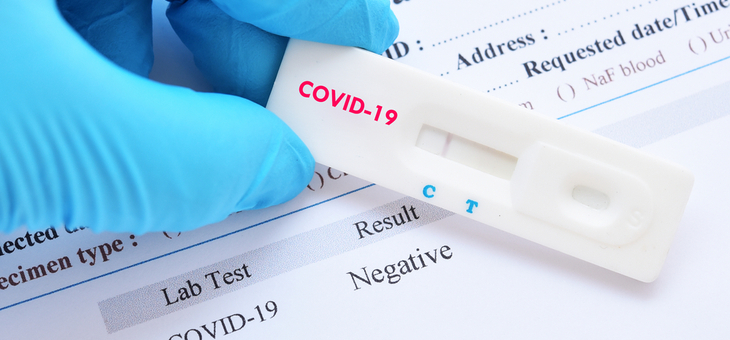Australians will soon be able to test themselves for COVID-19 from the comfort of their own home after the Therapeutic Goods Association (TGA) announced rapid antigen testing kits would be approved for use from 1 November.
The rapid antigen tests have been used widely in Europe, the United Kingdom and the United States and can provide results within 20 minutes.
Unlike in other nations, home tests can currently only be used under direct supervision from a qualified health professional.
On Tuesday morning, health minister Greg Hunt said that 33 rapid tests had been approved by the TGA for use under supervision, and manufacturers were now welcome to apply for at-home use.
Read: Return to COVID-normal not so simple for older Aussies
Approval for those that seek permission for at-home use is expected to be granted within a month.
“Home testing will be available from 1 November, obviously subject to individual tests being approved as safe and effective,” Mr Hunt said.
“This is an important additional protection for Australians, home testing to support Australians and the national plan.”
Read: When will COVID become endemic? What does that mean?
Mr Hunt stressed that the rapid antigen tests would not be used as a replacement for the usual PCR tests, which are more accurate, but would be an additional testing measure.
“One of the important things is that we can supplement what is known as a PCR testing … the testing that we all know if we go to a Commonwealth clinic or a state clinic … that will be supplemented with the access to home testing for Australians,” Mr Hunt said.
Further rules around the use of the rapid antigen tests will be determined by state and territory governments.
The head of the TGA, Dr John Skerritt, said states may need to create public health orders requiring people to report a positive test result and undergo a PCR test for confirmation.
He also said that by November, higher vaccination rates across the country would lessen the consequences of false negative and false positive results.
Read: Why Australia’s COVID plan needs more flexibility
The Doherty Institute’s Professor Deborah Williamson has previously said with COVID-19 more present in the community, rapid home testing would become more vital in the states with COVID-19 outbreaks.
“We went through quite a prolonged period where we didn’t have many, if any, cases. And so there just wasn’t any need to do it,” Prof. Williamson said.
“But now, unfortunately, the need is here – and it’s getting greater.”
In other COVID related news, Queensland announced that it had recorded six new locally acquired cases on Tuesday with serious fears about the fate of the NRL grand final going ahead in the state on Sunday if an outbreak develops.
Queensland Premier Annastacia Palaszczuk said there was “no need to panic” but the wearing of masks indoors has returned for Queenslanders in the Brisbane and Moreton Bay regions.
Residents in these two Queensland regions will also have restricted access to aged care and disability facilities to protect vulnerable residents.
NSW health minister Brad Hazzard announced on Tuesday that the Byron Bay and Tweed areas would come out of lockdown on Wednesday morning as there were no further cases of concern in those regions.
Why do you think Australia has taken so long to approve rapid antigen testing? Will you feel more comfortable knowing people will be able to get test results more quickly and easily? Why not share your thoughts in the comments section below?
If you enjoy our content, don’t keep it to yourself. Share our free eNews with your friends and encourage them to sign up.

